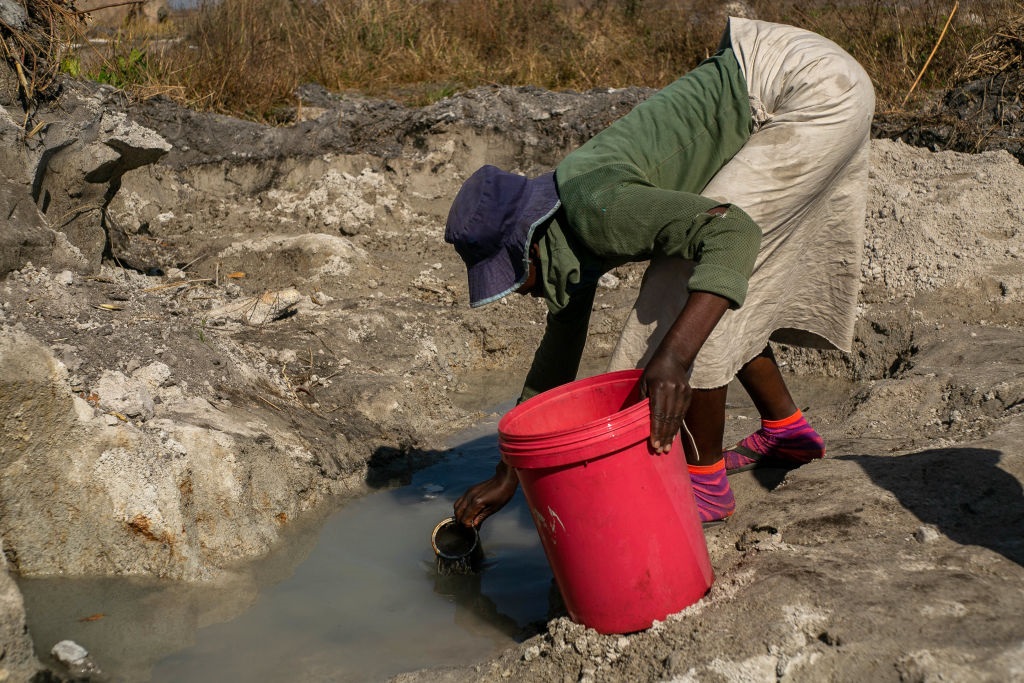Lenin Ndebele
Mozambique, Zimbabwe and Malawi are among the countries most affected by extreme weather.
A researcher says vulnerability is not actually a key factor in determining where donor funds go.
Most vulnerable communities are the same, with weak institutions and rampant corruption.
Countries most affected by climate change in Southern Africa have received the least financing for mitigation and adaptation measures because of weak institutions.
This was revealed by Aimée-Noël Mbiyozo, a senior research consultant at the Institute of Security Studies (ISS) in Pretoria, in her presentation at the recent seminar on "What is Southern Africa's plan for the climate crisis?"
"Vulnerability is not actually a key factor determining where funds go," she said.
Malawi, Mozambique and Zimbabwe, according to the German Watch Climate Risk Index in 2019, were ranked first, second and fifth of the countries most affected by extreme weather.
READ | Southern African countries facing serious heatwave
But, in terms of funding, they ranked at positions 32, 108 and 75 respectively.
"Finance tends to flow to countries where donors already have a presence. So they want a strong institutional capacity and perceivability to successfully implement projects and to give a return on investment," she said.
Zimbabwe is one of the countries most affected by corruption and state capture in the world.
Transparency International ranks Zimbabwe 157 out of 180 countries in the world, with a score of 23 out of a 100 points.
The government is currently working on passing a non-governmental organisation (NGO) Bill, which will outlaw aid agencies it deems unfriendly to the government.

A woman fetches water from a spring amid dry conditions in Zimbabwe.
Getty Images Tafadzwa Ufumeli/Getty Images
Mozambique, one of the poorest countries in the world, is currently cut from international financiers because of the "hidden debt scandal", in which senior politicians and public servants allegedly conspired to organise a R32 billion loan to Mozambique – an incredible 12% of GDP.
Last week, Malawian clerics, in a letter to President Lazarus Chakwera, said the country had high level corruption and accused the president's office of becoming "a source of inefficiency and mismanagement of the public service".
READ | Displaced people survive by eating grass amid discrimination in Mozambique THE SAME OCCURED IN UKRAINE 1930'S GREAT FAMINE
Mbiyozo said: "But (investors) are reluctant to invest in countries with poor policies and poor institutional environments; unfortunately, those are the communities that are most vulnerable.
"Then, again, once the funds reach the countries, they tend to be driven at the highest national level as opposed to making it down to the communities and this is really problematic."
In 2019, after Cyclone Idai affected Mozambique, Malawi and Zimbabwe, triggering a humanitarian crisis, international donors, private corporations, religious groups and ordinary citizens offered massive support for cyclone victims.
Then, there were reports of donor aid abuse, such as politicisation of food aid and theft, involving senior members of the Zimbabwe National Army. The News24 Africa Desk is supported by the Hanns Seidel Foundation. The stories produced through the Africa Desk and the opinions and statements that may be contained herein do not reflect those of the Hanns Seidel Foundation.
No comments:
Post a Comment